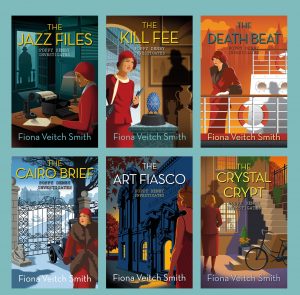 I’m relieved and excited to finally have finished my literary thriller, The Peace Garden. One of the most common questions readers ask is “Where did the idea for your book come from?” Some authors I know get irritated by the question and sarcastically say: “A warehouse off the M1” or something equally flippant. But I don’t mind it. In fact, it helps me to understand my own creative process.
I’m relieved and excited to finally have finished my literary thriller, The Peace Garden. One of the most common questions readers ask is “Where did the idea for your book come from?” Some authors I know get irritated by the question and sarcastically say: “A warehouse off the M1” or something equally flippant. But I don’t mind it. In fact, it helps me to understand my own creative process.
A story of two worlds
The Peace Garden is about a group of neighbours who live between two worlds. They are all displaced in some way: either by being literal immigrants, or being from different races, religions or socio-economic classes. I was born in Northumberland but moved with my family to South Africa when I was 10. Every four years or so, I would come back to England to visit my two grandmothers who both lived in Newcastle-upon-Tyne. As an adult I visited a couple more times and finally moved here with my South African husband when I was 32. During those holidays I became increasingly aware of a sense of displacement; of wanting to feel that I belonged somewhere but never knowing whether I was truly South African or English. Some of this is expressed in the main characters of Natalie, Thabo and Gladwin.
A story of gardens

On one of my visits to my Grandma Veitch who lived in a cul-de-sac very similar to Jasmine Close, she took me to see her sister Emma who lived around the corner. Auntie Emma lived in another cul-de-sac, and just like my grandma, was very proud of her garden. She told us that the neighbours were up in arms because someone had been stealing plants from them. She said that they all suspected the-man-at-the-end-of-the-street because he was the only one with a wall around his front garden. My grandma thought this was a good assumption.
I thought it was one of the funniest things I’d ever heard and I began to wonder who that man might be. The writer in me took over and before I knew it, Gladwin Nkulu, the political exile from South Africa, was born.
A story of mystery and terror
The Peace Garden started out as a literary novel using people’s gardens as a metaphor for their lives. But as the story began to unfold, it became clear that it fell into the mystery genre. I suppose this is the inevitable outcome of starting a story with a character hidden behind a garden wall. This was not an unwelcome development for me as I love reading mysteries and thrillers and much of my writing for children falls into this genre too. The book is divided into three parts. The first is a mystery about the main character, 12-year-old Natalie Porter, investigating plant theft in her Grandma’s cul-de-sac. She finally meets the-man-at-the-end-of-the-street but does not realise at this stage that he has a terrifying past. That past, and the horrors of Apartheid South Africa, are explored in the second part which ratchets up the tempo from mystery to thriller. The third part picks up with Natalie as an adult when she gets caught up in Gladwin’s shady world of international terrorism.

A story with humour
Although The Peace Garden deals with some serious themes and depicts violence, tragedy and injustice (particularly in the South African section) there is also a great deal of humour. Natalie is a charming narrator and has a quirky take on the world. So if you like your books with a good mix of darkness and light, you will find both in The Peace Garden.
A story of love
The Peace Garden is also a romance. Natalie falls for Gladwin’s son Thabo, but as in all love stories worth reading (or writing) not everything goes to plan…

Pingback: New review for Peace Garden : Fiona Veitch Smith
I loved reading the background to The Peace Garden – having lived in Africa myself, it has sparked my interest on many levels. Can’t wait to read it!
Hope you enjoy it, Jean!